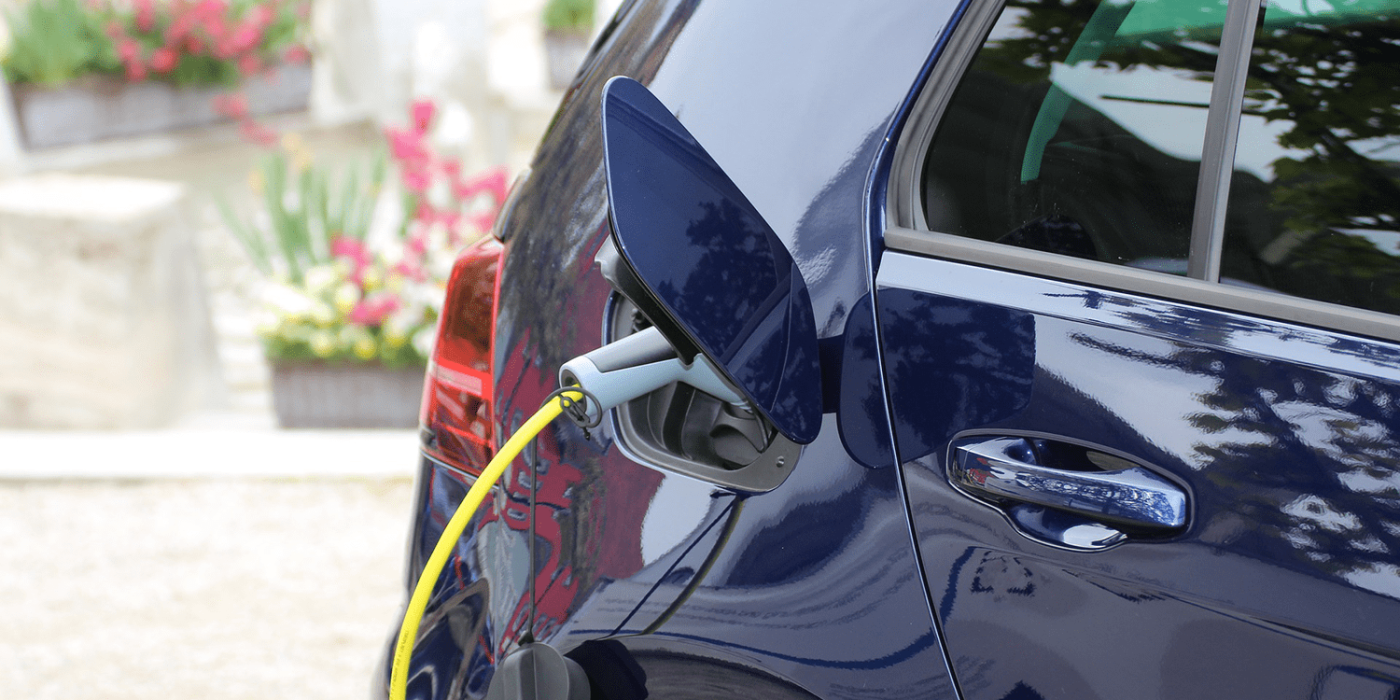Germany doubles EV subsidies, no more diesel support
In an economic stimulus package following the Corona crisis, the German government has included several measures to promote electric mobility. The most powerful one is that the state is doubling its share of the environmental bonus in the form of a new “innovation premium”.
++ Kindly find all updates to this article below. ++
The ecological rebate aims to promote the replacement of the country’s motor vehicles with climate- and environmentally-friendly electric vehicles, according to the published 15-page paper. For an electric car with a netlist price of fewer than 40,000 euros – such as an Opel Corsa-e, BMW i3, VW ID.3 and numerous imported models – this means a total subsidy of 9,000 euros. In the future, 6,000 euros will come from the federal government, while the manufacturer’s share will not be affected by the new premium, meaning they do not double their share. The measure also applies to plug-in hybrids at the somewhat lower subsidy rates. The rule is limited until the end of 2021, and the coalition government estimates the financial requirement at 2.2 billion euros.
However, the coalition Government has now also recognised that plug-in hybrids are not more environmentally friendly per se, but – as experts have repeatedly emphasised – the driving and charging profile is essential. The paragraph on the environmental bonus increase concludes: “As part of the national platform ‘Mobility of the Future’, we will discuss the question of optimised utilisation of the electric drive in plug-in hybrid vehicles. But it’s not yet clear what the consequences of this will be.”
In the version of the environmental bonus that has been in force since mid-February, a netlist price of 40,000 euros is the critical limit: cheaper electric cars are subsidised with 6,000 euros, plug-in hybrids in this price category still with 4,500 euros. More expensive BEVs are subsidised with 5,000 euros, while PHEVs are subsidised with 3,750 euros. The environmental bonus is financed half by the federal government and half by the manufacturers – although, in practice, the manufacturer’s share is subject to 19 per cent VAT, which has now been reduced to 16% across Germany until the end of this year.
Concerning the environmental bonus, the euro amount of the subsidy for BEV and FCEV would be calculated as follows:
| Basic net list price | Federal share (doubled) | Manufacturer share (net) | Total (net) |
|---|---|---|---|
| 40,000 | 6,000 | 3,000 | 9,000 |
| 40,000 to 65,000 | 5,000 | 2,500 | 7,500 |
For PHEV, the environmental bonus comes together as follows:
| Basic net list price | Federal share (doubled) | Manufacturer share (net) | Total (net) |
|---|---|---|---|
| 40,000 | 4,500 | 2,250 | 6,750 |
| 40,000 to 65,000 | 3,750 | 1,875 | 5,625 |
There is also a change in company car taxation: the gross purchase price limit for the 0.25 per cent taxation of company cars powered purely by electricity will be raised from 40,000 to 60,000 euros. This means that more models qualify for lower taxation.
No motor vehicle tax until 2030
Not a short-term stimulus measure, but a longer-term incentive is that Germany will abolish the vehicle tax for purely electric cars by the end of 2030 – until now this measure has only been limited until 2025. For all other vehicles, CO2 emissions are to be used as the primary basis of assessment for the motor vehicle tax from 2021 and will be raised “in stages” from the value of 95 grams per kilometre. However, a precise regulation is still pending.
To ensure that social services and SMEs, for example, do not cut back on the renewal of their fleets in these financially uncertain times, two “fleet exchange programmes” are to be set up. A programme called Social & Mobile is intended to promote electric mobility in urban traffic and will support non-profit organisations to this end with a total of 200 million euros in 2020 and 2021. There will also be a fleet exchange programme for tradespeople and SMEs that are using e-vehicles up to 7.5 tonnes. This is to be implemented “promptly”, further details are not yet available here. Probably the manufacturers who have such models on offer and can deliver them by the end of 2021.
Manufacturers will also receive a subsidy: in a bonus programme for 2020 and 2021, investments in “new technologies, processes and plants” are to be promoted. “Research and development for transformation-relevant innovations and new regional innovation clusters, especially in the supply industry, will be funded with 1 billion euros in 2020 and 2021,” it says.
What is notably missing in all the subsidies related to the purchase of vehicles and fleets are combustion engines. There were intensive discussions about this in the run-up to the conference. On one hand, it was argued that it is not beneficial to artificially keep a declining and unhealthy industry alive, as planned vehicle purchases would probably only delay the inevitable but going a step further with the subsidy of up to 9,000 euros may cause some customers to consider changing their type of drive. Critics pointed out that the exclusive promotion of electric cars is not suitable as a real economic stimulus because of the still low number of units.
However, internal combustion engines also benefit (as do BEV and PHEV) from another measure: the value-added tax will fall from 19 to 16 per cent between 1 July and 31 December 2020 as mentioned above. With a calculated sum of 20 billion euros, this is the largest single item in the economic stimulus package. However, companies must also pass the reduction on to their customers and not just increase their margins for the measure to have the desired effect. Economists point to a temporary reduction in VAT in the UK in 2008/09 when companies would have passed on 75 per cent of the cut to their customers.
The VDA (German association for the automotive industry) immediately announced that the manufacturers would pass on the VAT reduction to the customer – after all, it is one of the few measures that also benefit gasoline and diesel engines. “The temporary reduction in value-added tax is an important measure to revive demand in Germany,” the association said. According to VDA, companies are also examining “how they could further strengthen the effect of the reduced value-added tax. In other words, expect discount campaigns.
2.5 billion for charging points and battery cells
But the paper makes it clear where the government sees the future – at least in large parts. An additional 2.5 billion euros are to be invested in charging points and battery cell production, including associated research. “The expansion of the charging infrastructure as a necessary prerequisite for the ramp-up of e-mobility will be accelerated,” it says. “To this end, the charging infrastructure master plan is to be implemented rapidly”, and the same goes for the uniform payment system for charging points. Besides, the development of publicly accessible charging infrastructure “for example at day-care centres, hospitals, district centres, sports fields” is to be intensified.
However, a controversial passage from the “master plan” remains: The state will impose a supply condition to ensure that all petrol stations in Germany also offer charge points. A tricky extension is however that regulators will examine “whether the construction of rapid charging points can be treated as a decarbonisation measure of the mineral oil industry”.
Also, the ‘National Hydrogen Strategy’ which has been discussed for months, is to be presented “in the short term”. The draft is still in the process of coordination between the ministries. The coalition government estimates the financial requirement here at a total of seven billion euros. Among other things, industrial production plants with a total capacity of up to five gigawatts are to be built by 2030 – including the necessary onshore and offshore energy production.
Public transport to go electric
Two other essential mobility measures should not be left unmentioned: private and municipal operators will receive a total of 1.2 billion euros through a bus and truck fleet modernisation program to switch to alternative drive systems. The master plan states: “To increase the demand for electric buses and make urban transport more environmentally-friendly, funding for electric buses and their charging infrastructure will also be increased for a limited period until the end of 2021.”
The central government will also draw up a framework regulation which will allow the federal states to grant subsidies to public transport companies to compensate for the sharp drop in fare revenues. This requires notification by the EU Commission. This year, the regionalisation funds are also to be increased by 2.5 billion euros on a one-off basis – so that public transport operators can compensate for losses resulting from the lack of passenger revenue.
Update 09 June 2020: Reuters reports that the German federal government is planning an extraordinary cabinet meeting on Friday to get large parts of the stimulus package underway. Among other things, the higher purchase premiums for electric cars are to be discussed and further details on how the government plans to implement the decision can be expected then. Subsequently, as mentioned above, the scheme will have to be submitted to the EU Commission for approval under state aid law.
In addition, Reuters is reporting on details of the change to the vehicle tax in Germany announced as part of the economic stimulus package, citing a draft law from the Ministry of Finance. For example, the CO2 component in the tax on new cars is to be significantly expanded from 2021: If a new vehicle emits up to 95 grams, no surcharge will have to be paid – only the engine capacity component of the motor vehicle tax, as has been the case up to now. The surcharge will rise in five stages, starting at two euros per gram of CO2.
From 115 grams upwards, 2.20 euros per additional gram are due, from 135 grams upwards 2.50 euros, from 155 grams upwards 2.90 euros follow. Over 175 gram it is then 3.40 euro. If a car emits more than 195 grams of CO2 per kilometre, every gram above this limit is charged four euros. That is about twice what is currently due. So far, there is no gradation for the CO2 component; every additional gram above the limit of 95 grams is charged at a flat rate of two euros.
With the surcharge for cars with very high CO2 emissions, especially sports cars and large SUVs with petrol engines will be more heavily burdened with the car carbon tax. Not only these, but also most small and compact cars without hybrid technology have CO2 emissions above the limit of 95 grams per kilometre. As Reuters writes, the Golf 8, for example, with the simplest engine, already exceeds 115 grams and thus has to tax some of its CO2 emissions at 2.20 euro. If the motor vehicle tax were to be passed with these rates, the levy would, therefore, increase for all Golf drivers – except for those of the PHEV variants. ID.3 customers will not pay any motor vehicle tax at all for the time being: the tax exemption for electric cars will be extended until the end of 2030.
Update 10 June 2020: Regarding the German government’s economic stimulus package and the intention to invest an additional 2.5 billion euros in charging points and battery cell production, including associated research: Reuters now cites government circles saying that the federal government plans to invest 500 million euros in the establishment of private charging points. Another 1.5 billion euros will be used to set up a battery cell production facility, and the remaining 500 million euros will be used for research and development.
The German government’s economic stimulus package has not yet been adopted. According to earlier information from Reuters, the cabinet intends to launch large parts of the package on Friday, June 12. The government intends to use the funding for the development of private charging points to target private individuals and building owners. However, the exact conditions of the subsidy and the amount of the subsidies per charging point have not yet been revealed.
With reporting by Sebastian Schaal, Germany.
reuters.com, bundesfinanzministerium.de (PDF in German), reuters.com, reuters.com (updates 09.06.2020), reuters.com (update 10.06.2020)





0 Comments